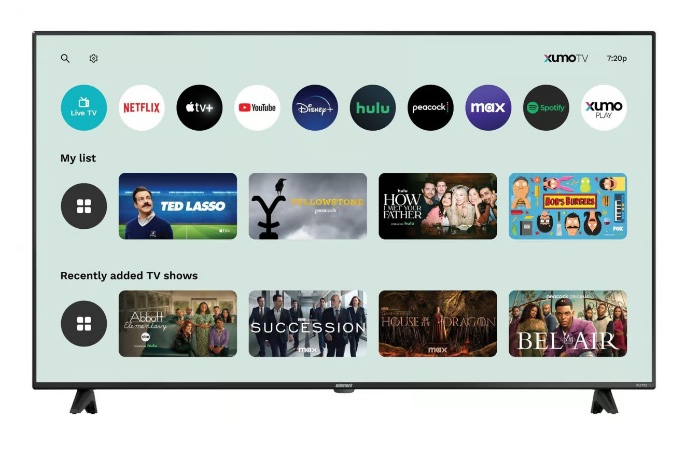
The smarter way to stay on top of the streaming and OTT industry. Sign up below.
You are now subscribed
Your newsletter sign-up was successful
Ever since Comcast attempted (and ultimately failed) at selling its own smart TVs two years ago under the brand name “XClass TV,” it’s been clear that the company is keen on transitioning its X1 pay TV UX expertise into the cutthroat gateway TVOS business.
In its latest attempt to enter that market, Comcast and its Xumo TV JV partner, fellow cable giant Charter Communications, aim to bring a new line of smart TVs to market, manufactured by Element Electronics and called “Xumo.”
Update: An earlier version of this story included an incorrect reference to Element's headquarters.
Calling it “the moment of truth for Comcast’s streaming efforts,” veteran video tech writer Janko Roettgers, publisher of the new Substack newsletter Lowpass, reported those TVs are about to arrive at Walmart and other retailers.
Over the next few weeks, Comcast plans on launching four different 4K Xumo models made in partnership with Element, with screen sizes of 43, 50, 55 and 65 inches.
While the XClass TVs were only sold at Walmart, Comcast has secured other retail partners for the launch of Xumo. In addition to Walmart, the line will be available at rent-to-own store Aaron’s, as well as other retailers.
After the XClass sales drive stalled for nearly a year, this is a critical time for Comcast to prove whether or not it is capable of going toe-to-toe in the gateway TVOS market with entrenched competitors including Roku, Google and Amazon.
The smarter way to stay on top of the streaming and OTT industry. Sign up below.
Comcast purchased free, ad-supported TV (FAST) platform Xumo three years ago for $100 million. The Xumo FAST service lives on as Xumo Play, but Comcast is using the ‘Xumo’ branding to define a broader TVOS joint-venture play with Charter, hoping to control the living-room TV set as it did in cable TV’s pre-cord-cutting halcyon.
The stakes are high.
Which apps are allowed on the interface, who monetizes the advertising and how content is displayed are just a few of the key matters determined by ownership of the operating system.
If Comcast (and Charter) can create a market foothold for its OS, it will provide an incredible amount of data about program viewership, not to mention a bunch of other advantages that they can use to monetize and drive revenue.
Smart TV companies like Samsung, LG and Vizio have already made similar moves, eschewing Roku et al and developing their own operating systems. For its part, Samsung is now licensing its OS to third parties.
The good news for Comcast — according to Roettgers, Xumo TV specs look solid on paper.
Jack Reid is a USC Annenberg Journalism major with experience reporting, producing and writing for Annenberg Media. He has also served as a video editor, showrunner and live-anchor during his time in the field.
